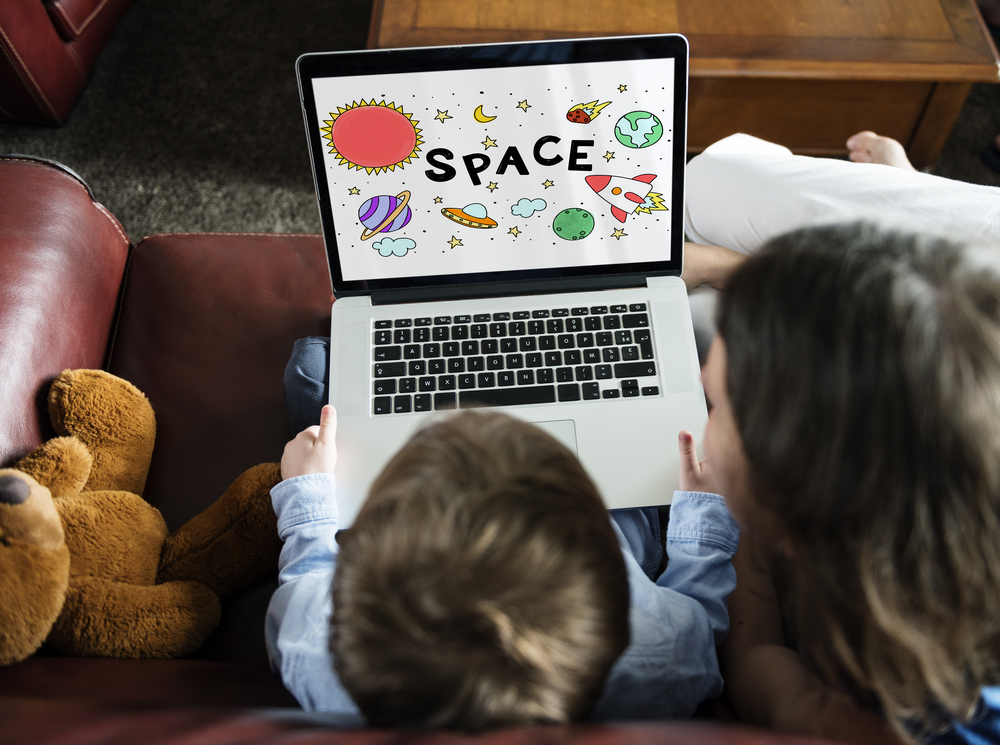Cognitive Development Matching Worksheets for Ages 4-7
8 filtered results
-
From - To
Enhance your child's cognitive skills with our engaging Cognitive Development Matching Worksheets designed for ages 4-7. These interactive worksheets help young learners improve critical thinking, problem-solving, and memory while having fun. Each activity encourages children to connect related concepts, build vocabulary, and develop reasoning abilities in a playful way. Ideal for both classrooms and home learning, our worksheets promote independent exploration and strengthen essential cognitive skills essential for academic success. Perfect for developing young minds, these worksheets offer a seamless blend of creativity and education, making learning an enjoyable experience. Start your child’s journey to cognitive excellence today!
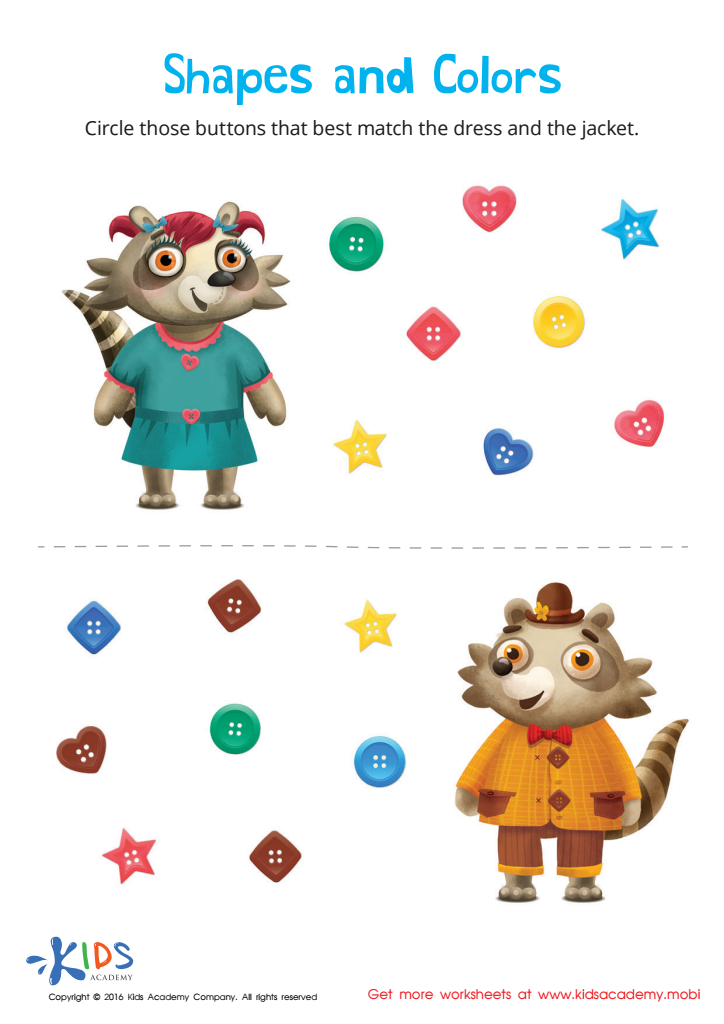

Matching: Shapes and Colors Worksheet
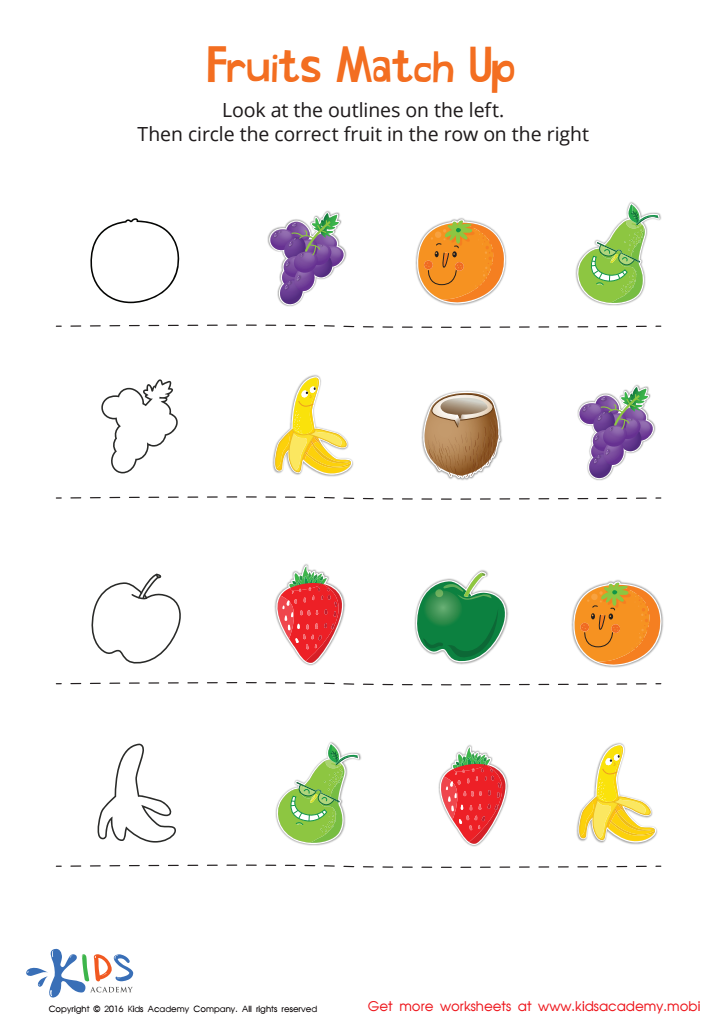

Fruits Match Up Worksheet
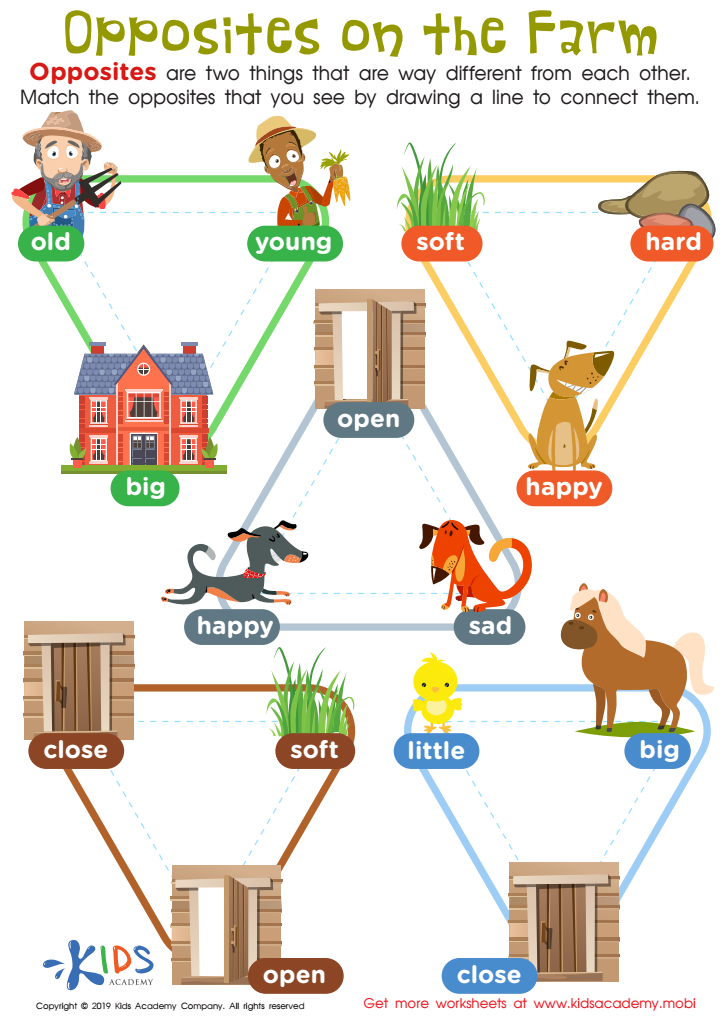

Opposites on the Farm Worksheet


Colorful Arrays Bingo Worksheet
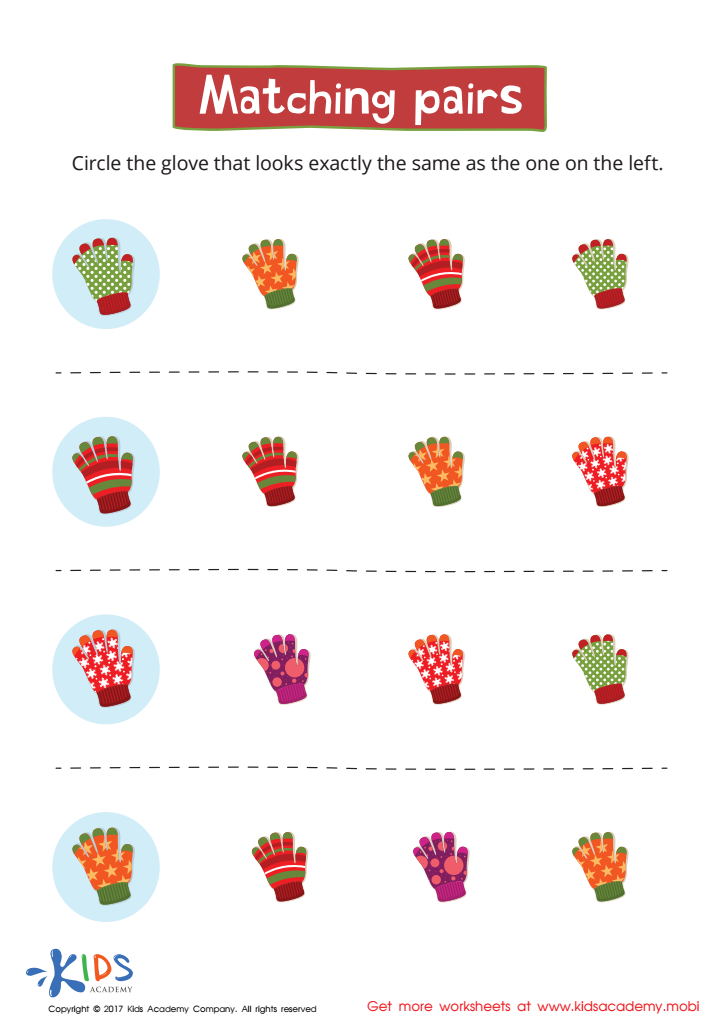

Matching: Matching Pairs Worksheet
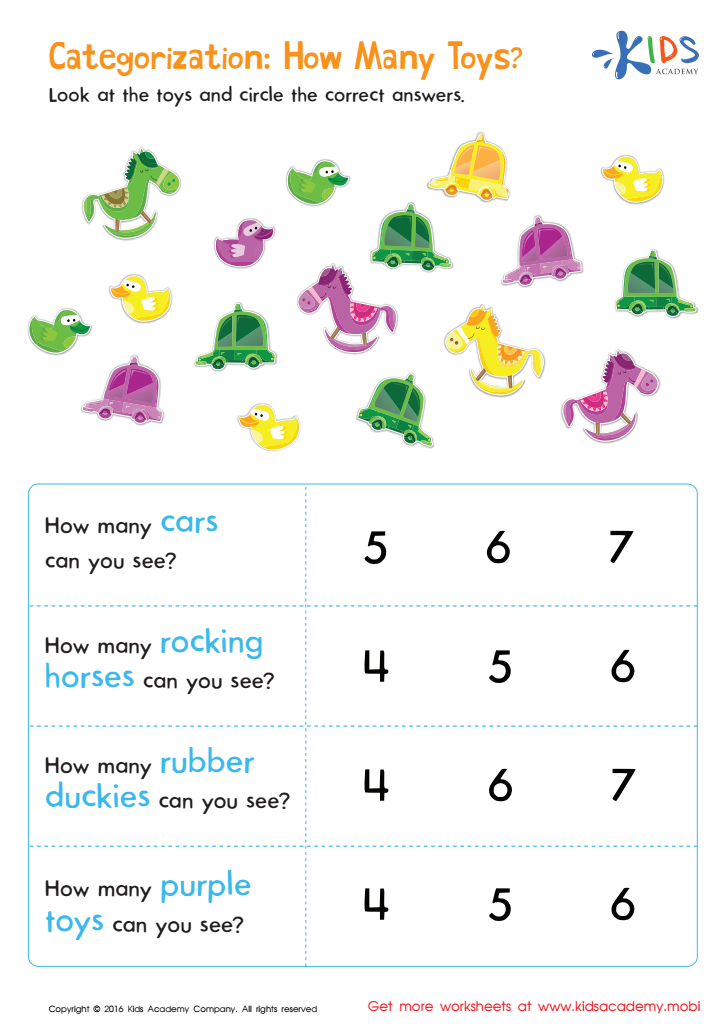

Classifying Toys by Type and Color Sorting Worksheet
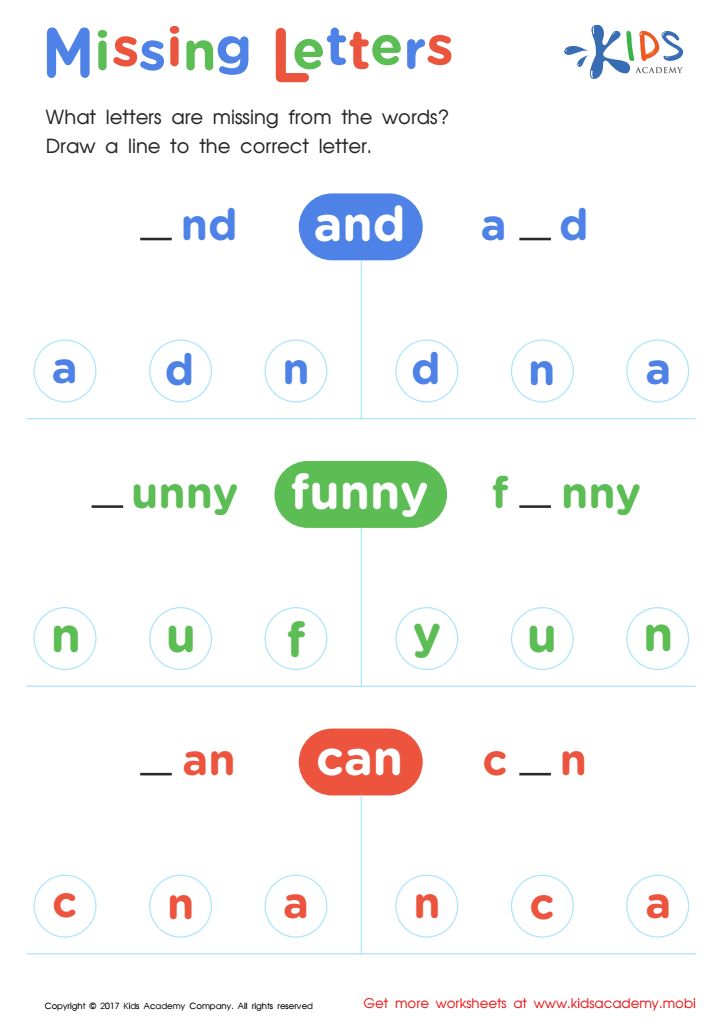

Missing Letters Worksheet
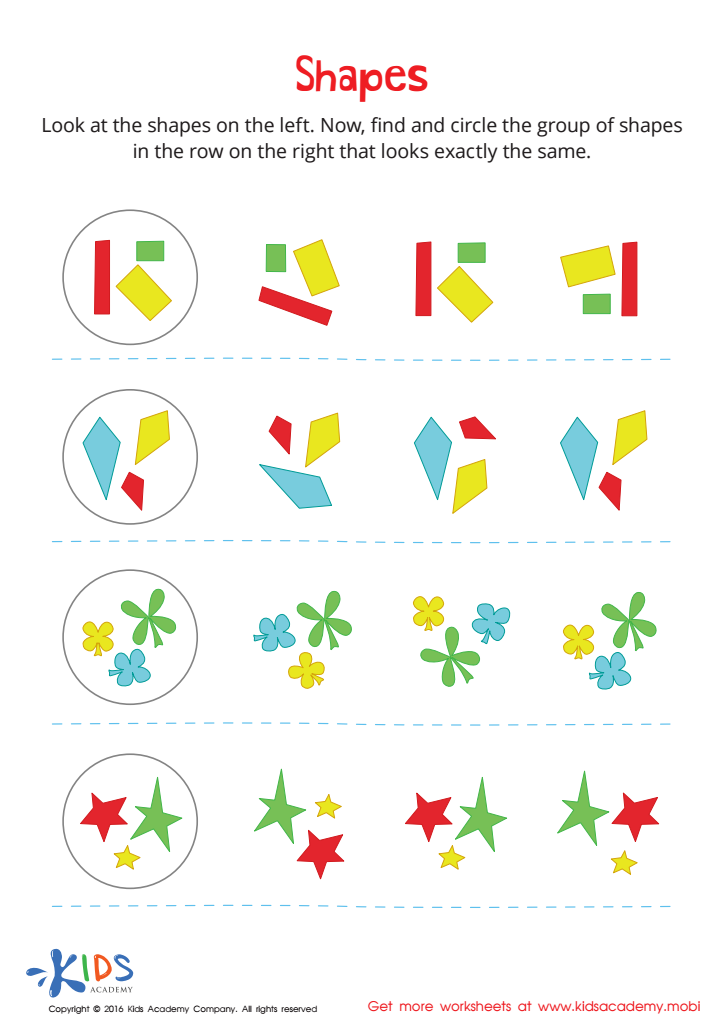

Shapes Worksheet
Cognitive Development Matching for Ages 4-7 is vital for parents and teachers alike, as it lays the foundation for a child's learning and growth. During this stage, children undergo significant brain development, processing information and forming critical thinking skills. Ensuring that learning activities align with their cognitive stage promotes deeper understanding and retention.
By focusing on developmentally appropriate tasks, educators can provide insights into children's abilities, facilitating personalized learning experiences. For example, engaging with games that enhance problem-solving or memory skills can boost confidence and foster a love for learning. This alignment helps children transition smoothly between stages of complexity in their academic journey.
Additionally, parents involved in cognitive matching can better support their children at home, reinforcing what they learn at school. Understanding cognitive milestones enables them to recognize and address potential developmental delays or challenges early on, leading to more targeted interventions.
Moreover, matching activities to cognitive development fosters a safe and stimulating environment, contributing to critical social-emotional growth. Whether through play or structured learning experiences, parents and teachers can create rich opportunities for children to explore, question, and engage with the world around them, setting the stage for lifelong learning.
 Assign to My Students
Assign to My Students









